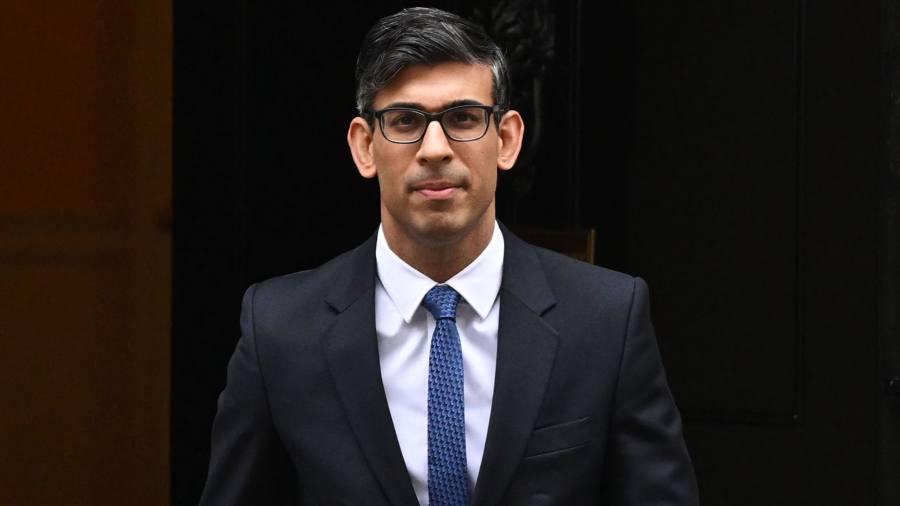Nigel Farage, a driving force behind Britain’s departure from the EU, has declared that Brexit has “failed”, as Eurosceptics rail against the government’s failure to carry out a big cull of EU law or cut migration.
Farage, former leader of Ukip, blamed the Conservative government for botching the delivery of Brexit, including controlling migration, telling the BBC’s Newsnight programme: “Brexit has failed.”
Downing Street insisted that Rishi Sunak, a Brexit supporter, thought Britain’s departure from the EU had been a success, citing the ability of the UK to shape its own farm policies as an example of the benefits.
Opinion polls have recorded a big drop in support for Brexit in recent months. One suggested this year that the only area of Britain where a majority of people still thought Brexit was a good idea was in a corner of east Lincolnshire.
But Tory MPs are growing restive as net legal migration hits record levels and after Sunak ordered a U-turn on a previous pledge that all EU-era laws would be reviewed or repealed by the end of 2023.
Sunak was accused by one senior Tory Eurosceptic of throwing only “trivial” or obsolete laws on to the Brexiters’ long-promised “bonfire of Brussels red tape”.
Sir Bill Cash, chair of the Commons European scrutiny committee, derided the list of 600 pieces of EU-derived law identified by ministers for repeal by the end of 2023.
He said the list included quota rules relating to wheat bran imports into the French department of Réunion and the setting of fishing opportunities for anchovies in the Bay of Biscay for the 2012 fishing season.
Cash also highlighted measures relating to fishing in São Tomé and Príncipe as among more than 150 EU rules relating to fishing that are set to be scrapped.
Another measure related to “limits to working hours for drivers during the 2001 foot-and-mouth outbreak”, Cash noted.
Conservative Eurosceptics are furious with Sunak for watering down the retained EU law (REUL) bill, which on Wednesday will face further scrutiny in the House of Lords.
Jacob Rees-Mogg, the former business secretary who drew up the original bill, has accused Sunak of behaving like the Borgia family, which became synonymous with treachery in Italy in the 15th and 16th centuries.
Sunak has scrapped the “sunset clause”, under which all EU-era bills would have to be reviewed or scrapped by the end of 2023, in favour of a schedule of 600 pieces of legislation to be binned.
But in a letter to Sunak, Cash said his committee’s initial assessment of the schedule found that “almost without exception” the measures contained in it were “trivial, obsolete and are not legally and/or politically important”.
“Revocation of this REUL cannot be construed as lightening the regulatory burden for businesses or spurring economic growth,” Cash wrote.
Kemi Badenoch, business secretary, announced the retreat last week, arguing that a rush to review or scrap all EU laws by the end of the year was unrealistic and undesirable.
Business groups, trade unions and charities had warned that the breakneck rush to carry out the purge of EU laws could endanger valuable protections for consumers, workers and the environment.
As well as scrapping specific laws, the groups have warned that the bill still hands so-called Henry VIII powers to ministers that will enable EU-derived laws to be changed without proper scrutiny in future.
Greener UK, a coalition of 10 of the UK’s largest conservation groups, including the RSPB and the National Trust, said the list of 600 laws slated for deletion had also raised specific concerns in the areas of water management and air pollution control.
Employment groups have also warned that the government’s commitment to remove the “supremacy” of EU law from the UK legal system would create huge uncertainty because it would remove the legal precedents on which UK courts had based their decisions.
The TUC, the trade union umbrella organisation, said the bill also laid the ground work for the government to reduce long-established protections on working hours and holiday pay. Paul Nowak, the TUC general secretary, said the government was “undermining working-time protections by stealth”.
Read the full article here




